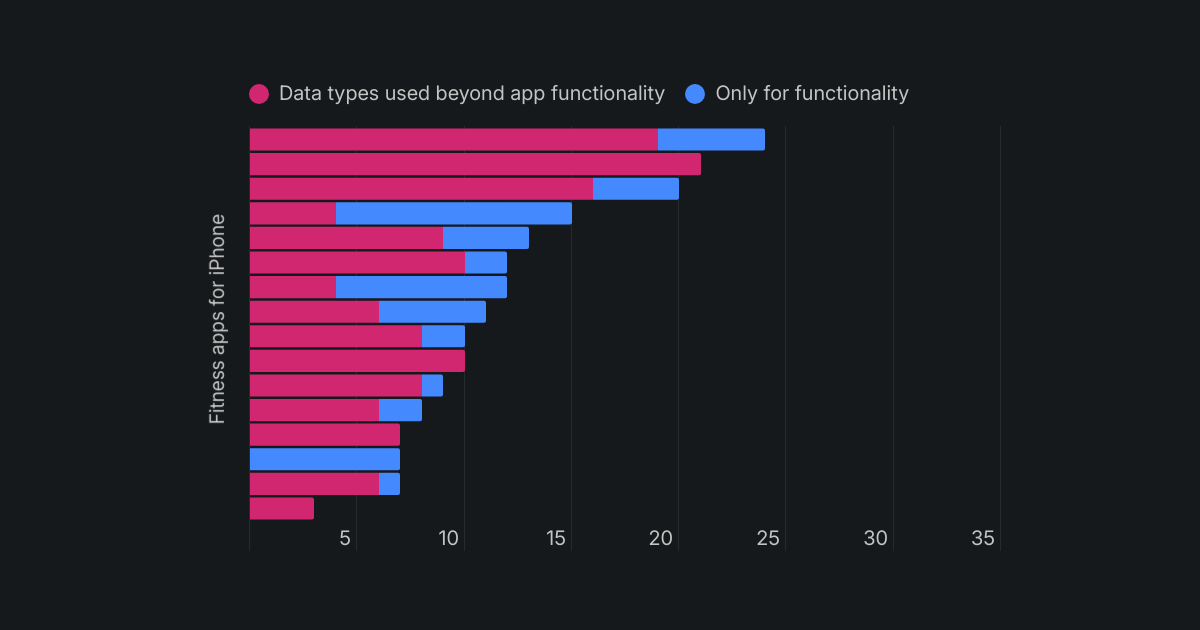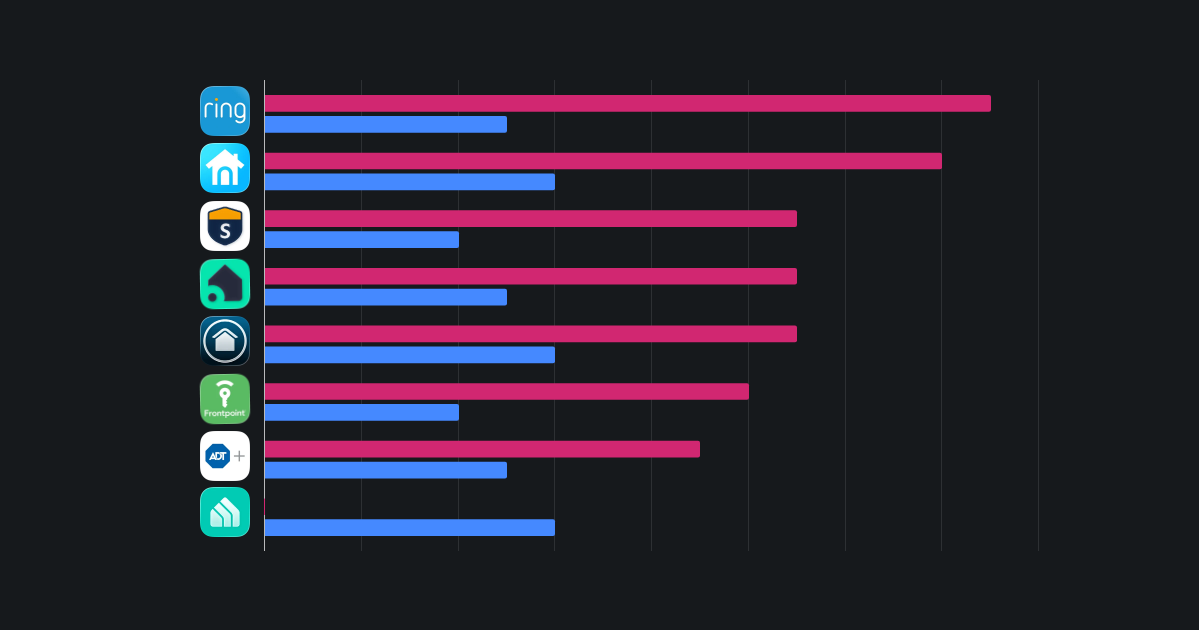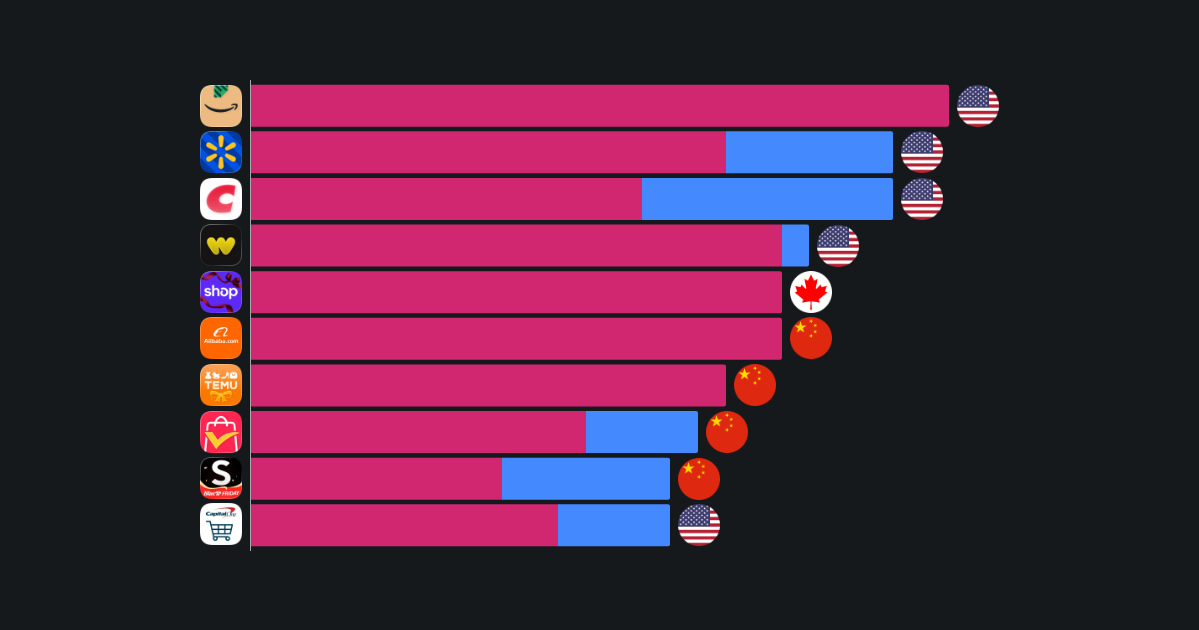digital democracy|digital privacy
Do astrology apps know where your data goes?
Do you enjoy dusting off the crystal ball (also known as astrology apps) now and then to see what the stars have to say about your future? You’re not alone – plenty of people can’t resist a good cosmic guess.
The most popular app, Co–Star, receives over 151,000 monthly downloads in the US alone. Meanwhile, Nebula generates $516,350 in monthly revenue². Clearly, the stars are feeling generous, at least toward astro app developers.
It’s fascinating to see which “phase” your relationship is in, but it’s just as important to know what personal data these astrology apps are collecting, and who they’re sharing it with. Spoiler: it’s not just the stars.
Key insights
- Half of Astrology apps track users’ data. Tracking refers to linking user or device data collected from the app with third-party data for targeted advertising or advertising measurement purposes or sharing it with a data broker¹. Once shared, this data can potentially end up in the hands of hundreds of partners, who are free to use it for their own purposes, such as highly targeted ads.
- The Nebula app leads the way with 5 data types used to track, including Email Address, Purchase History, and Advertising Data. This app is the second most popular in the US app store and has a rating score of 4.6 from over 159K reviews.
- Other apps which track users’ data include Luna (2 data types: Product Interaction and Advertising Data), AstroClub, Astrotalk, and The Daily Horoscope (all 1 data type: Device ID, Other Usage Data, and Device ID, respectively).
- That said, all analyzed Astrology apps collect some form of user data. The average number of collected unique types of data was 5 out of a possible 35. And while the average figure is somewhat low, some apps collect many more.
- Overall, Nebula is also the most data-hungry app, collecting as many different data types as Zodiac signs: 12 across numerous categories, for example: Contact info, Location, and Identifiers, among other categories. This is over twice as much as the group average (5 data types), and includes Name and Coarse Location, for example.
- Additionally, this app, which is the highest-grossing horoscope and astrology app in the United States with about $516,350 in monthly revenues², is one of the three from this list which collects data for the purpose of third-party advertising, such as displaying third-party ads in your app or sharing data with entities that display third-party ads¹. For example, Nebula may share your data with third-parties, including Facebook, Apple, and Amazon, and as a result, they analyze interactions of how users make subscriptions, and serve ads to specific groups of people³.
- The most popular app, Co-Star, is not particularly privacy-friendly either. It collects 8 unique data types, including Contacts and Coarse Location, for example. This app, rated at 4.8 with over 201K reviews, leads the App Store charts when it comes to Astrology, but is also consistently identified as one of the most downloaded apps in the United States in this category (over 151,000 monthly downloads)⁴.
- The app that collects the fewest data types is AstroClub, with only one (Device ID). However, this data type is used to track, and this app includes third-party advertisers. Although TimePassages collects two data types (Product Interaction and Crash Data), they are not linked to the user, and there are no third-party advertisers. Ranking 4.8 with 42.3K reviews, this app appears to be the most privacy-friendly.
- These apps are not only popular in the US: Co-Star is also the most popular Astrology app in the UK, Germany, France, and Spain. Nebula is in the top 3 Astrology apps in the UK (3rd place behind AstroTalk), France (2nd place followed by Moonly), and Spain (2nd place followed by Luna). In Germany, the 2nd and 3rd most popular Astrology apps are Daily Horoscope and Kaave.
- Additionally, to use these Astrology apps, users are also required to provide personal information such as date, time and location of birth, or gender, in order to generate astrological charts or get horoscopes and predictions. And even if apps are not selling your data to third parties, there is always a risk of a data leak. For example, last year the popular app Moonly experienced a data leak which exposed data from 6 million users, including dates of birth, exact GPS locations, and email addresses.⁵
Methodology and sources
We identified the 10 most popular Astrology apps in the United States using AppMagic⁶ by selecting the time period of 2025, with the tag Horoscope, and store: iPhone App Store. Then we analyzed the privacy details of these apps on the Apple App Store. We examined whether the apps collect data for the purpose of “Third-Party Advertising”, whether they collect any data linked to the user, and checked information about the collected data types.
For the complete research material behind this study, visit here.

